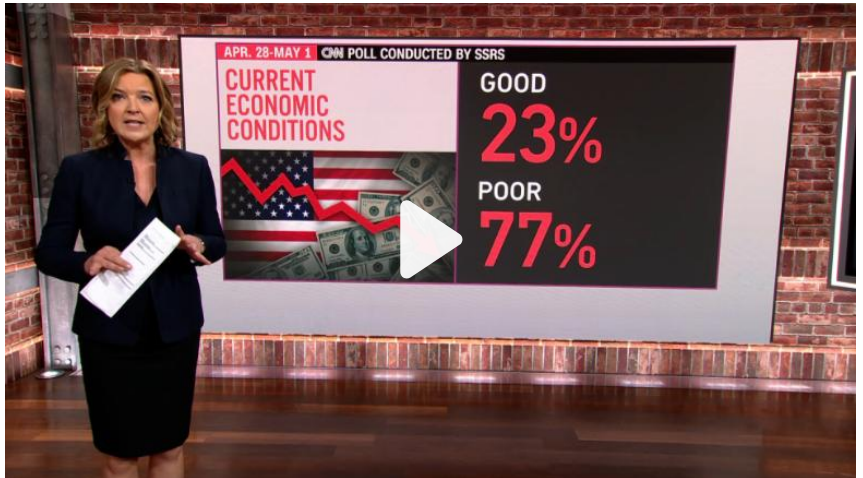The pandemic provided a fresh source of purchasers for the Stock Market, and many original traders are now facing their first big downturn.
Some Millennials and Gen Z-ers found themselves jobless during the Great Recession, yet flush with cash through stimulus programs and increased federal unemployment payments. The market crash was an easy entry point to investing. The casino was open and everyone was winning big. These new investors had less wiggle room when it came to losing money, but hey, they had never lived through a market crash or recession.
Then the cryptocurrency boom came, contributing to rising prices, shortages, inflation, and interest rates before a period of chaos in politics ensued. The S&P 500 saw a decrease of approximately 13 percent from its previous high on January 3, declining to less than 20 percent of its intraday peak on the same day.
For newbie investors, things are changing fast.
Buying first, asking questions later
More than 20 million US citizens have opened non-retirement investment accounts over the past two years. A FINRA study found that most who opened their first account were under 45, had lower incomes than other investors and began investing in 2020, according to a Schwab survey. In all, about 15% of all current US stock market investors say they first began investing in 2020, according to a Schwab survey — and the majority who opened their first non-retirement investment account that year were under the age of 45 and had lower incomes than other investors, a FINRA study found. Flushed with liquidity, “they bought first and asked questions later with meme stocks, SPACs, NFTs. There was a lot of what I call indiscriminate buying,” said Leo Grohowski, chief investment officer at BNY Mellon Wealth Management.
Charlie Munger, Warren Buffett’s business partner, noted the stock market during that era as “a mania of speculation,” noting that “we got people who know nothing about stocks, being advised by stockbrokers who know even less.”
Now, Peter Mallouk, president and CEO of Creative Planning, a wealth management firm, told CNN’s Paul R. La Monica that the good times are over. “The casino is closed,” he said. Investors who gathered on Reddit’s WallStreetBets when stocks were going up have lost money—and they’re not happy about it. “Turns out investing is kinda difficult when the free money faucet is turned off,” one user wrote, while another added: “I blew up my savings and portfolio. I don’t even have money to lose more money on the stock market so I’ll be out.”
But seasoned professionals warn that is not whatsoever the way to go. Here’s what they’d advise.
Don’t panic, learn lessons and keep going
Investors who are panicked about the market’s drop in value should not abandon their investment strategies, said Grohowski. “I hope that people learn the lesson that fundamentals and valuation do matter,” he said. “This will turn out to be a better entry point than exit point for longer-term-oriented investors.” Even if some investors lose big as a result of this correction, Grohowski thinks there will eventually be “a better market ahead.”
Other investors have also urged an optimistic outlook. “In every bear market, it feels like the end of the world is near while it’s happening,” wrote Ben Carlson, manager at Ritholtz Wealth Management, in a recent note. However, he continued: “Every other bear market in history is an epic buying opportunity until the next one.”
How to survive the downturn
When market volatility increases, investors should focus on investment strategies that include factors such as cash-rich balance sheets, positive earnings revisions and low volatility. Sharp rallies are par for the course during bear markets, but investors should be prepared for an extended downturn. “Aggressive Fed policy, the turning of the liquidity tide and slower economic growth will likely keep pressure on stocks,” said Liz Ann Sonders, chief investment strategist at Charles Schwab. She recommends active investors select stocks by focusing on factors such as cash-rich and low-debt balance sheets, positive earnings revisions and low volatility. Sharp rallies are par for the course during bear markets, but investors should be prepared for an extended downturn. “Aggressive Fed policy, the turning of the liquidity tide and slower economic growth will likely keep pressure on stocks,” she added.
Given all of those concerns, the advice to “not panic” might sound difficult to follow. One way to avoid panic is to invest in assets outside the market that can weather a crisis, said Mark Riepe, managing director of the Schwab Center for Financial Research. If you have enough resources outside of your investments and you can hang on until they rebound, you won’t need to sell at the bottom and risk missing out when they inevitably rise again (remember: past bear markets have tended to be shorter than bull markets). The Schwab Center for Financial Research compared different portfolios’ returns during an average bear market (which it defined as a 20% drop from its peak) and found that investors who remained 100% in stocks as the market touched its low and then rebounded performed better than investors who had some money in cash during the downturn.
In a recent note, David Kelly, chief global strategist of JPMorgan Asset Management, wrote that although economic uncertainty abounds, investors should remember that volatility is necessary for better long-term returns on equities. He also advised investors to keep in mind that a diverse portfolio reduces risk, valuations are a good indicator of long-term gaining potential, and to invest with logic not emotion. “Very often the best time to get invested is when people feel most scared and confused,” wrote Kelly. “In a world of ‘?’s, investing principles deserve an ‘!'”








